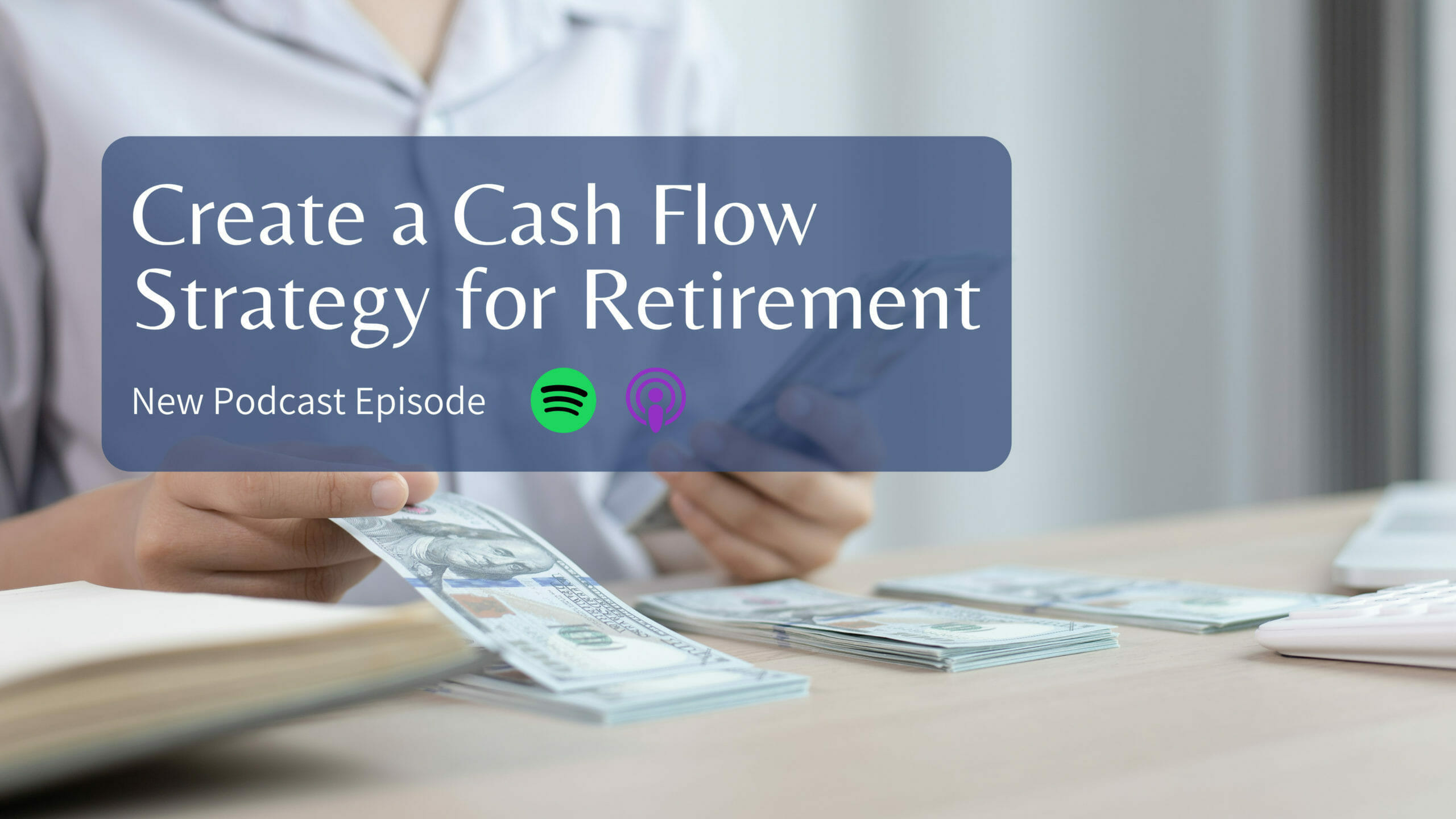
Create a Cash Flow Strategy for Retirement
On this episode of A Wiser Retirement Podcast, Casey Smith, Matthews Barnett, CFP®, ChFC®, CLU® and Brad Lyons, CFP® talk about how to prepare cash flow in your portfolio for retirement. They describe a couple strategies for maintaining cash flow in retirement, the process of preparing for inflation, and why it’s important to invest in bonds.
Listen on Apple Podcasts or watch on YouTube:
SUMMARY:
Prepare Cash Flow for Retirement
As you begin to prepare your cash flow for retirement, it is important to look at the different tools that are available to you. Some of these tools may include: social security, pension plans, traditional 401ks, Roth IRAs, and brokerage accounts. The most common in a portfolio are brokerage funds, tax-deferred funds (IRAs), and Roth assets. Once you know which tools are available to you, you can alter withdrawal strategies and spending order based on your unique need.
Strategies for Stable Cash Flow
During retirement, cash flow is one of the most important variables to manage in your portfolio. There are two main strategies you can use to create stable cash flow in your portfolio. The first strategy is to keep your healthcare costs low and to only pull money from a Roth or a brokerage account. The biggest advantage of utilizing this strategy is that it can help you keep your taxable income down. The second strategy is to have several accounts to pull money from. When you begin to do this, make sure to include both taxable and tax-free money. Fortunately, if these strategies don’t appeal to you, there are many other strategies you can use to create a stable cash flow.
Less Stress, Peace of Mind
There are a few ways to achieve less stress and peace of mind in retirement. Start by having a long-term plan. Then, create a buffer between you and market volatility. This creates a sense of security and protects your portfolio during market downturns. Another good practice to relieve stress in retirement is to multiply your current cash needs by two so there is two years’ worth of income set aside. This can ensure that you have enough income to stay retired if there is a crisis.
Prepare for Inflation
As you begin to prepare for retirement, it’s important to remember it can be difficult to stay retired due to economic factors such as inflation. Keep in mind, retiree inflation is much different than a working person’s inflation. This is due to the fact that a retiree has a set amount of money that needs to last over twenty years. During that time inflation is bound to rise. There are a couple different ways a retiree can prepare for this. The two main things a retiree can do to keep exposure to inflation to a minimum is eliminate debt and have cash reserves set aside.
Bonds in Your Portfolio
In a high inflation environment, bonds may not perform like they usually do. Don’t be scared by this. In fact, a situation such as this can benefit your portfolio because any new money you invest in bonds will most likely get a higher interest rate paid on that money. Also, it’s important to have bonds for temporary market crashes because they act like insurance for your portfolio. Overall, your portfolio should be built to withstand tough times, so try to stay invested and weather the storm.
Download our white paper on “Your Pre-Retirement Checklist”
TIMESTAMPS:
0:00 Intro
3:45 Prepare Cash Flow for Retirement
7:46 Strategies for Stable Cash Flow in Retirement
13:35 Less Stress, Peace of Mind
20:38 Prepare for Inflation
24:24 Bonds in Your Portfolio
LINKS:
Learn more about Casey Smith and connect with him on Twitter.
Learn more about Brad Lyons.
Learn more about Matthews Barnett.
CONNECT:
Twitter, Instagram, Facebook, LinkedIn, and YouTube.
Learn more about A Wiser Retirement podcast and access previous episodes.
Share This Story, Choose Your Platform!
Wiser Wealth Management, Inc (“Wiser Wealth”) is a registered investment adviser with the U.S. Securities and Exchange Commission (SEC). As a registered investment adviser, Wiser Wealth and its employees are subject to various rules, filings, and requirements. You can visit the SEC’s website here to obtain further information on our firm or investment adviser’s registration.
Wiser Wealth’s website provides general information regarding our business along with access to additional investment related information, various financial calculators, and external / third party links. Material presented on this website is believed to be from reliable sources and is meant for informational purposes only. Wiser Wealth does not endorse or accept responsibility for the content of any third-party website and is not affiliated with any third-party website or social media page. Wiser Wealth does not expressly or implicitly adopt or endorse any of the expressions, opinions or content posted by third party websites or on social media pages. While Wiser Wealth uses reasonable efforts to obtain information from sources it believes to be reliable, we make no representation that the information or opinions contained in our publications are accurate, reliable, or complete.
To the extent that you utilize any financial calculators or links in our website, you acknowledge and understand that the information provided to you should not be construed as personal investment advice from Wiser Wealth or any of its investment professionals. Advice provided by Wiser Wealth is given only within the context of our contractual agreement with the client. Wiser Wealth does not offer legal, accounting or tax advice. Consult your own attorney, accountant, and other professionals for these services.





